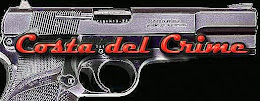01:08
Posted by
Unknown
,
0 Comments

JACK STRAW, the former foreign secretary, instructed diplomats to lobby for the release of a convicted criminal described by police and customs intelligence reports as a leading smuggler of heroin into Britain.Foreign Office telegrams ordered efforts to secure “the immediate release” from a German jail in 2001 of Andreas Antoniades who worked for years as a paid informer for Customs. At the time, he was wanted in Greece on drugs smuggling charges.Although police or customs informers routinely receive rewards in cash, or reduced sentences if they are prosecuted, Straw’s attempt to help Antoniades avoid trial appears at odds with Customs’ code of practice, which states: “Informants have no licence to commit crime.”Antoniades, who has never been convicted of a drug offence, was released shortly after the Straw telegrams and has since moved to Dubai.According to former police officials and intelligence reports, Antoniades, 75, was one of three leading agents for Customs inside the gangs who have flooded Britain with billions of pounds of heroin since the early 1990s. One senior former drugs intelligence officer described the three as being, at one time, among the top five suspected heroin importers into Britain.Former customs officials say leading drug smugglers often work as moles, motivated by the prospect of destroying rivals or hoping for an “insurance policy” to reduce their sentence if they are convicted. Intelligence from such sources has led to the seizure of huge hauls of drugs. But some question if they also win too much protection.Antoniades, who confirmed to a Sunday Times reporter two years ago that he had made about £300,000 as a registered informant for Customs, is a Greek Cypriot who was first recruited in the 1950s by Britain to inform on Eoka, a guerrilla group fighting British control of Cyprus.In 1959, Antoniades was resettled in Britain and turned to crime. He was jailed for four years for “wounding with intent” in a gun attack in west London. Over the following decades, however, Antoniades continued as an informer and became what one Customs official said was “one of the best we ever had”.In the 1990s, suspicions grew, whether well-founded or not, that he was working with Turkish and Kurdish gangsters. One Customs officer reported that he was “suspected of being involved in organising large shipments of heroin being imported to the UK by various methods”.But when arrested in Germany in 2001, according to an investigation by BBC Radio 4’s File on 4, to be broadcast on Tuesday, British officials tried to help him avoid trial. One telegram from Straw to the British embassy in Berlin on July 31, 2001, asked officials to “press the case for Mr Antoniades’ release immediately” with state and federal justice ministers. Officials were told to point out that “a public trial in Greece would reveal Mr Antoniades’ long career as an informant for Customs and Excise (1987 to date) and put his life at risk from criminal elements”.But Straw’s instructions angered staff at the National Criminal Intelligence Service. One former senior officer at the agency, which has since been abolished, said: “At this very time we were preparing to target Antoniades for significant intelligence-led operations. How would the Germans and Greeks have reacted if we subsequently arrested him?”








